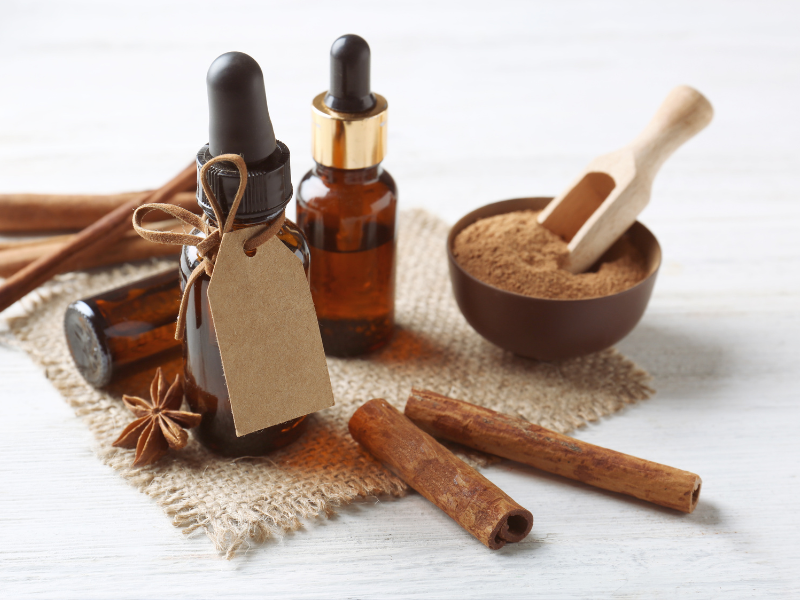However, their uses don’t stop there. You can also use essential oils for cleaning and disinfecting your home - while leaving your home smelling naturally clean, fresh and amazing!
If you’re looking for an all-natural way to keep your home clean and fresh and want to reduce your impact on the environment, using essential oils for cleaning is an excellent alternative. There are no harmful chemicals or additives included if you use oils that are organic and 100% natural, so you can keep your family safe - and protect the planet too.
Here’s everything you need to know about using essential oils for cleaning and disinfecting.
How to use essential oils for cleaning
Your aim when using the best essential oils for cleaning will determine how exactly you use them. If you want to use them in your laundry, for example, the method you use will be different from using essential oils for fresh air or for using essential oils for cleaning and disinfecting.
In your laundry

Eucalyptus, lemon, lemongrass essential oil, lavender, peppermint and tea tree are good choices for your laundry because of their fresh scent. These are just guides, however, since you can use whatever oil you desire, according to its aroma and your particular preferences.
Put a few drops of your chosen essential oil in your washer when you’ve added your clothing, or create a blend using several oils to enjoy maximum benefits, and add this to your detergent dispenser before you start the laundry.
If you use fabric dryer balls, you could also add several drops of your chosen essential oils to the dryer balls before turning on the dryer. This is a great alternative to chemically scented dryer sheets.
For cleaning
When you’re using the best essential oils for cleaning, you’ll need to stock up on a few other products too. You’ll need to add bicarbonate of soda and white vinegar to your shopping list. The exact solution you create will depend on what surface you’re dealing with:
The best essential oils for cleaning
You can use essential oils for fresh air and to clean the space around you in many different ways. These include using diffusers and creating your own disinfectant sprays.
When you use diffusers, you will be able to let these essential oils clean and “disinfect” your body from the inside out as you breathe them in, too. There are many that are highly recommended for respiratory illnesses and other physical ailments like sore throats, headaches, aching muscles and even inflammation of joints.
This is recommended because not only do essential oils have an array of antimicrobial properties, but they can also help with anxiety, depression, insomnia, nausea and stress. Self care should be as much of a priority as a clean and welcoming home. Using the best essential oils for cleaning and disinfecting gets you the best of both worlds.
Clove

Clove oil is a remarkably effective antibacterial agent. It’s composed of between 80% and 95% eugenol, a phenol that kills bacteria by disrupting their cell membranes. It is effective against germs like Pseudomonas aeruginosa, Salmonella typhi and Staphylococcus aureus, to name a few.
Cleaning your kitchen with clove oil will make it smell like fresh baking while cleaning away food-borne germs.
Eucalyptus

Eucalyptus essential oil is an excellent essential oil for cleaning. Its active chemical components (primarily eucalyptol aka 1,8-cineol) are well known for their clarifying, cleansing and purifying properties that eliminate bacteria from the air and surfaces.
Its clean, earthy, minty scent will soothe and refresh you and leave the room it's used in smelling wonderful to boot.





